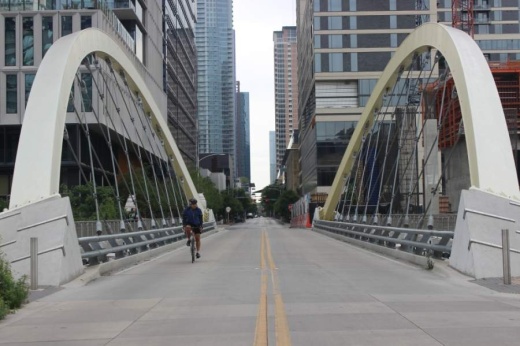That can leave families in an unfamiliar and stressful position, said Sara Ramirez, executive director of Catholic Charities of Central Texas.
“It’s a very scary time, and it’s hard for families to take that first step,” Ramirez said.
To help reach families who either have already sought services in the past or who are reaching out for assistance for the first time, the city of Austin announced April 21 it has selected four different organizations to distribute funds in order to help struggling families cover their basic needs.
Catholic Charities of Central Texas will distribute $1.6 million in this first phase of funding. Asian Family Support Services will distribute $1 million in funding. El Buen Samaritano and Austin Area Urban League will each distribute $500,000.
Austin City Council allocated a total of $15 million April 9 from the reserves of the Relief in a State of Emergency, or RISE, fund.
Darlene Lanham, executive director of Asian Family Support Services of Austin, said staff members at AFSSA will roll services provided via the RISE funding into their ongoing work.
“We’ve got a team of 20 folks who do crisis planning, safety planning, community outreach and violence prevention work. All of our team will be flipped into case managers for RISE funding,” Lanham said.
Recipients of RISE funding must meet certain requirements to be eligible, including an income level at or below 200% of the poverty line, significant hardship experienced from the coronavirus and ineligibility for assistance from the federal stimulus package passed by U.S. Congress in March.
According to Ramirez, those who did not receive federal stimulus money include residents who do not have a Social Security number but are employed and pay federal taxes as well as those who make such a low income that they do not submit a federal tax return.
“The most vulnerable and poorest of the poor do not quality for the stimulus,” she said.
Catholic Charities of Central Texas will begin assisting clients using RISE funding April 27. El Buen Samaritano is taking calls now and will start seeing applicants by appointment only beginning the week of April 27. Lanham said the AFSSA will begin helping clients using the RISE funding as soon as it arrives from the city. The Austin Area Urban League also has a hotline set up for anyone seeking help, at 512-838-3442 in English and 512-900-1598 in Spanish.
Once someone is screened to ensure all eligibility requirements are met, help could come in a few different forms depending on the needs of the individual family. Recipients could receive Visa gift cards to pay for food, rent payments made directly to a landlord or property management company, help with a car note sent directly to the title holder or mortgage assistance paid to a bank, according to the nonprofits.
The limits for residents are the same as the federal CARES Act thresholds: $1,200 for an individual, $2,400 for a couple and $500 for each additional dependent, up to a $5,000 limit for a family of five or more. That money does not necessarily come all at once. For example, those who needs help with rent could receive $600 to help make their May payments and $600 on June 1.
The city said in a press release it chose the four initial agencies to distribute RISE funds based on “experience providing community-based services and financial assistance.”
El Buen Samaritano has established a food pantry open Tuesday-Thursday mornings. Erin Wiegert, associate director of development at the nonprofit, said in an email that need has “reached far beyond the clients we already work with.”
“We expect the need for RISE funding to reflect that as well,” Wiegert wrote.
While AFSSA outreach efforts and language skills of its staff are focused on Asian communities, the organization does not deny services to anyone and helps clients of any ethnic background. Lanham said the infrastructure is in place at the organization, and the additional funding will help AFSSA quickly get help to those in the most need.
“We have always done this [type of work], and we’ve always done it with the support of the community,” she said. “This is building on it. We’re set up for it, and this is adding to that.”
Those seeking assistance can contact the nonprofit organizations directly or call 211, where the United Way for Greater Austin will help individuals navigate the health and human services system.





